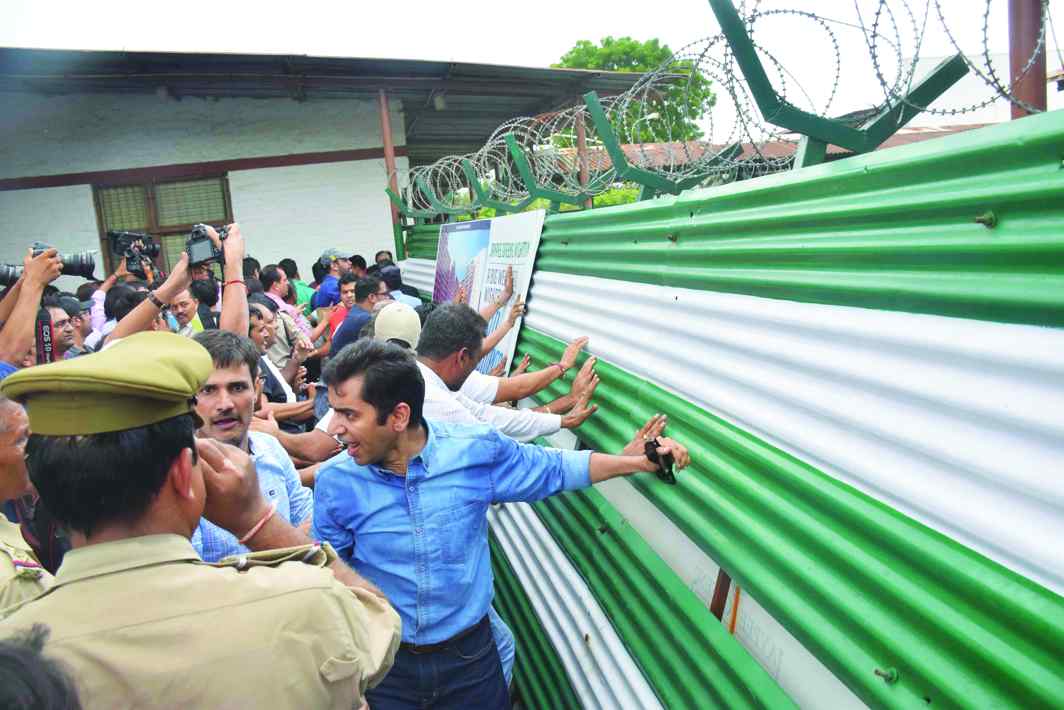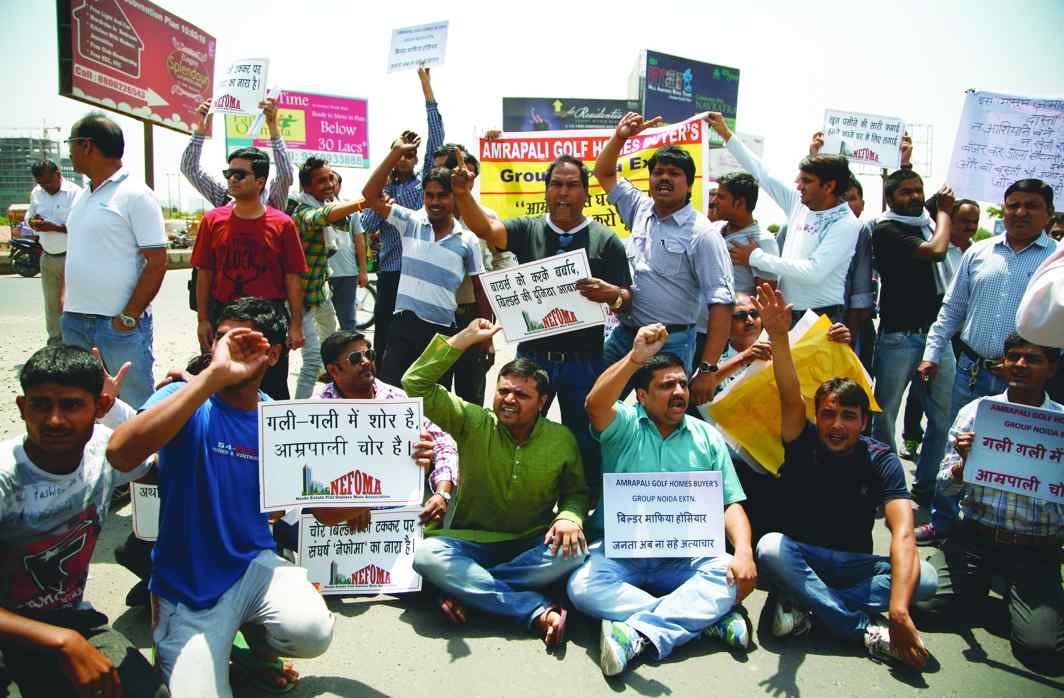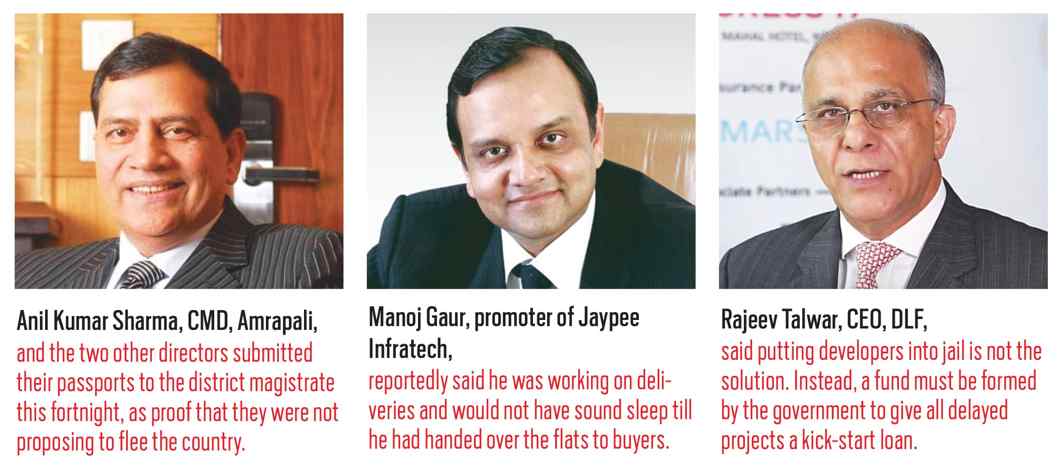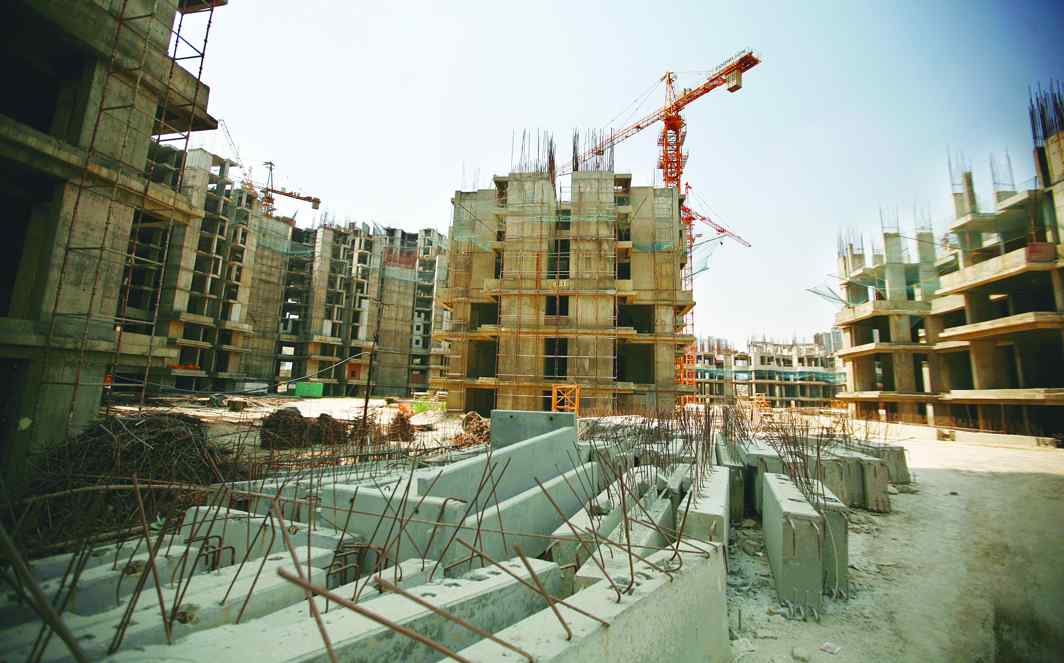Above: Jaypee Wish Town remains a dream for thousands who invested in it. Photo: Twitter
This well-known novel could well exemplify the dreams of many middle class buyers. But with unscrupulous builders taking them for a ride, will the Real Estate (Regulation and Development) Act give them succour?
~By Ramesh Menon
For middle class India, one of the most cherished dreams is to have a house of one’s own. As real estate majors default on their promises after taking huge sums from buyers and declare insolvency, there is panic.
One of the builders is Jaypee Infratech Ltd, (JIL) which had taken money from buyers of over 32,000 flats in Noida along the Yamuna Expressway. Panic struck when the Allahabad bench of the National Company Law Tribunal (NCLT) admitted insolvency proceedings against the builder. The petition was moved by IDBI Bank which led the consortium of lenders to Jaypee.
Angry investors who have been waiting to get possession of their flats well past the promised date wondered how they would continue paying both EMIs on their housing loans and rent. Thousands of home buyers protested outside Jaypee’s office demanding refunds.
Manoj Gaur, the promoter of Jaypee Infratech, reportedly said he was working on deliveries and would not have sound sleep till he had handed over the flats. Noida MLA Pankaj Singh said he had spoken about the plight of the buyers to UP Chief Minister Yogi Adityanath. Noida CEO Amit Mohan Prasad has also assured buyers that work at Jaypee’s Wish Town in Noida would continue and houses would be delivered on schedule despite the insolvency procedures.
But that did little to pacify the buyers. One middle-aged investor, who had invested Rs 35 lakh in a flat here, said: “It is hard-earned money that we invested. We cannot afford to lose it to a dishonest builder. Will Real Estate (Regulation and Development) Act (RERA) come to our help? The builders will have the money to hire the best legal teams to bail them out, but what can commoners like us do?” She was busy contacting other buyers to see if some collective legal action can be initiated to force the builder to either cough up the money or assure possession within a given period.

It is important to look at the genesis of the problem. It all started when the RBI issued an order to banks that accounts of those with Non-Performing Assets with outstanding loans exceeding Rs 5,000 crore should be submitted to the National Company Law Tribunal. That is when JIL got into the list. Banks were then forced to take action.
In the last two years, Jaypee managed to raise Rs 25-30,000 crore by selling its assets, but all that money went to repay banks, overdue fixed deposits and debentures. Also, Yamuna Expressway Industrial Development Authority also had to be paid Rs 410 crore. Hardly any money was left for completion of Wish Town, Jaypee’s major project.
Attempts to contact the chairman of Noida Authority were futile as he did not respond to emails and his phone was switched off.
The fate of thousands of investors now hangs in the balance all over the country as builders renege on their promises. Most of them are half-built or nowhere near completion despite deadlines having come and gone. Many high rises in Noida, Ghaziabad, Faridabad and Gurgaon stand like sentinels without any construction work.
To calm frayed tempers, Anil Kumar Sharma, Ajay Kumar and Shiv Priya, three directors of the well-known Amrapali Group which has huge projects in Noida and Greater Noida, submitted their passports to the district magistrate this fortnight. It was their way of telling him and the buyers that they were not proposing to flee the country. They did this after lead financier Bank of Baroda approached the National Company Law Tribunal for starting insolvency proceedings against the developer as it was defaulting on loans.

When prospective buyers zeroed in on Amrapali Dream Valley in Noida, it almost seemed like a long-nurtured dream come true. They paid up all their dues, hoping for early possession. Now they are on a hunger fast, demanding that the project be completed. Only 30 percent of it has been completed so far. In a letter to the magistrate, the directors said that they would try to ensure that the projects are completed and handed over to the buyers. They also submitted a six-page document on their plan to do the same.
How did matters come to such a critical juncture? Real estate magnates became over-ambitious and wanted to grow exponentially. They announced fancy projects, took a major part of the money for it and instead of pouring it into the project, invested in another one.
They did this again and again and were suddenly caught in the pincer of land acquisition proceedings, farmer agitations demanding more compensation, orders from the National Green Tribunal over violations and so on. This jeopardised the fate of thousands of stakeholders. In some cases, original buyers had even passed away. In many cases, errant developers were found to have sold houses without even getting approval of the project plans.
However, some builders offered to shift buyers to others projects as the present ones had become unviable due to a host of reasons, including legal tangles. They are expecting the government to be sympathetic to their plight, saying inflation and other ground realities in the real estate sector had taken the wind out their sails. Many say that after demonetisation, the demand for houses dramatically fell as most transactions were done in cash.
 A Noida resident told India Legal: “It is no more the sunrise industry that it once was.” He moved into a colony which was half-done as many residents were ready to live amidst muck and dust in order to save on high rentals. U Panjani, a businessman who had invested in a flat in Greater Noida, found that he was stuck in a high-rise apartment that was being given without a lift. He chose not to take it as climbing up and down in his late fifties was just not possible.
A Noida resident told India Legal: “It is no more the sunrise industry that it once was.” He moved into a colony which was half-done as many residents were ready to live amidst muck and dust in order to save on high rentals. U Panjani, a businessman who had invested in a flat in Greater Noida, found that he was stuck in a high-rise apartment that was being given without a lift. He chose not to take it as climbing up and down in his late fifties was just not possible.
A Bengaluru-based resident told India Legal how she had sold her property abroad and had come to India to be with her aged parents. She paid in full for two flats that were adjacent to each other. One was for her and the other, for her parents. She never got possession of either. Just a skeleton of a structure came up and the builder vanished. She hopes that RERA will help her.
Under this Act, the promoter can only take 10 percent of the cost of the dwelling to begin with and will have to return the entire money invested by buyers with interest in case he defaults on the delivery date. If the buyer does not agree to take the money, the builder would have to pay a monthly interest on the sum that was paid till the delivery is carried out.
Entrepreneur Sanjay Sawhney, who booked a flat in Antriksh in Sector 77, Noida, had to incessantly fight to get possession of it. He told India Legal: “A lot of work still remains before the project can be completed and given to us as promised. The builder has taken the plea that he has not been able to sell nearly 200 flats as the Noida Authority has not built an approach road. And if he cannot sell them, he cannot complete the basement parking, the club house and other amenities. The builder has told RERA that it will be completed by 2023 despite the fact that hundreds of families are already living there.”
RERA envisaged ensuring fair practices that would protect the interests of home buyers and also instill some sense of discipline among builders.
Arvind Jain, president, Developers Township Property Owners Welfare Society, told India Legal: “Jaypee Infratech owns Wish Town, so it should be able to repay loans from likely receipts of Rs 6,000-7,000 crore for unfinished projects there and also by selling other assets. Banks must provide soft loans to Jaypee Infra quickly and restructure its debts. The shortfall of funds needed for completion should be addressed with sufficient safeguards like Escrow accounts. Banks and homebuyers should be part of regular monitoring of fund usage and construction progress. Jaypee did get the Floor Area Ratio increased in various projects and these ranged from 5 to 15 percent. Not just Jaypee, but other developers also did this as it was the norm. Right now, a majority of buyers are frightened and confused due to wild theories being propagated. It is time for them to think rationally and file their claims to follow the legal process. All our protests and efforts should be for resolution of the issue and thereby, stopping the insolvency.”
Passed by parliament last year, RERA came into effect in May this year. It envisaged ensuring fair practices that would protect the interests of home buyers and also instill some sense of discipline among builders. As a regulator, it would also examine delays, pricing and construction quality. Builders also have to now be more transparent in whatever they provide to buyers.

With RERA kicking in, developers have to register their project with it and provide details of financial statements, legal title deed and supporting documents. Any advertisement of the project will have to carry the unique RERA registration number. Only then will they be permitted to invite, advertise, sell, offer, market or book any plot, apartment or house. It will also ensure that builders submit original approved plans for their ongoing projects and the alterations made later. Details of revenue collected from allottees and how it has been utilized will also have to be furnished.
Sawhney, who has rallied consumers to fight back with erring developers, feels that RERA will help in the Jaypee case as it will get others to come in and rescue them. They will probably get some other developer to complete it after getting Jaypee to sell off some of its assets. The government also knows that it is hard-earned money that citizens have paid, he said.
Some developers like Amrapali have built commercial spaces first before any flat was built and have leased them out or have sold them for around Rs 30,000 per square feet. But low-income houses that they promised were not built.
Rajeev Talwar, CEO, DLF, who is also the chairman, National Real Estate Development Council, an autonomous self-regulatory body under the Ministry of Housing and Urban Poverty Alleviation, told India Legal: “Every buyer should get his apartment at the earliest and at the same rate at which it was booked. RERA must ensure that this happens. But putting developers into jail is not the solution. Instead, a fund must be formed by the government to give all delayed projects a kick-start loan. This should be put into an escrow account so that it is used only for reviving the delayed project. Once progress can be shown, buyers will be ready to give the remaining amount as there will not be a credibility situation.”
But the fact is that the real estate industry has gone downhill not due to government policies but because builders fell victim to greed.


